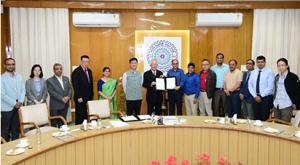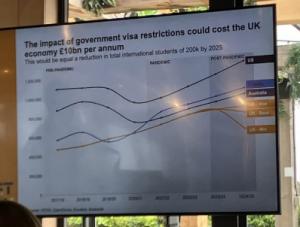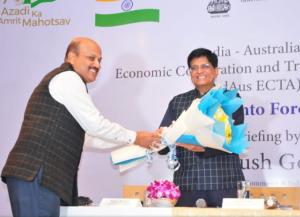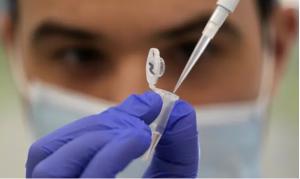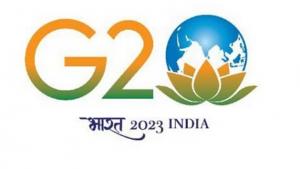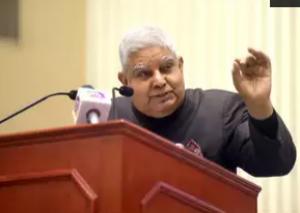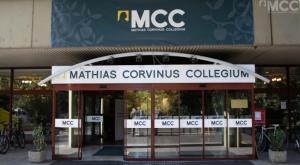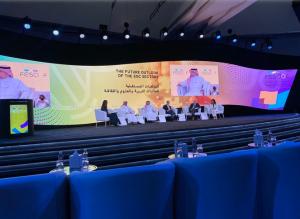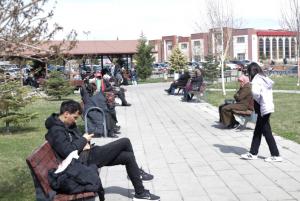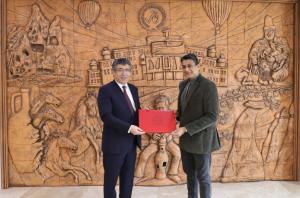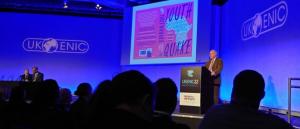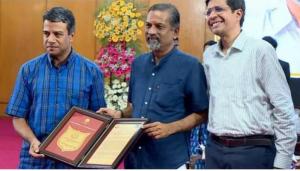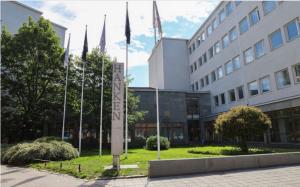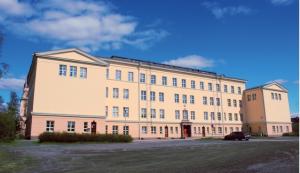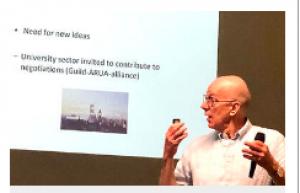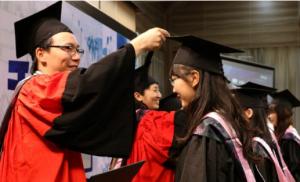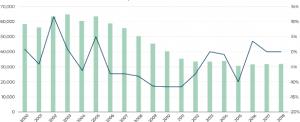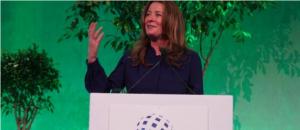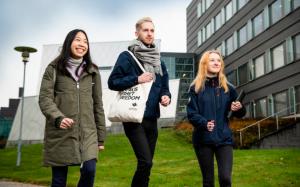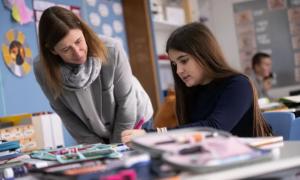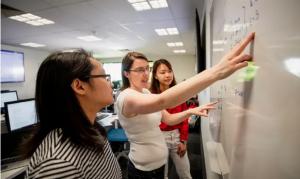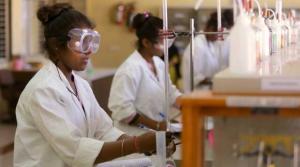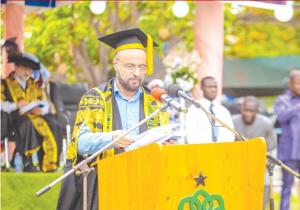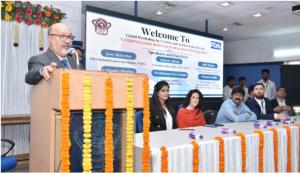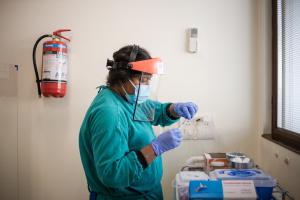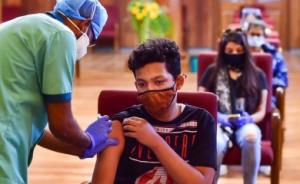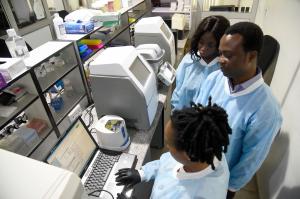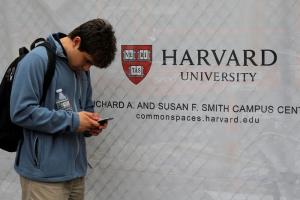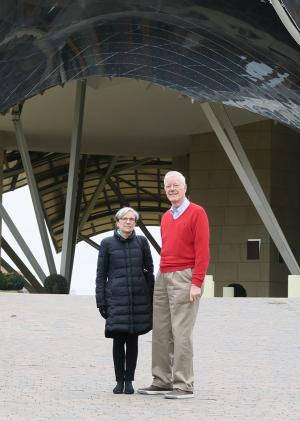Three Danish universities – up from only one in 2018 – feature among the top 10 recipients of funding from Europe’s flagship innovation programme Horizon Europe following the United Kingdom’s exit from the European Union, with the three institutions netting a total of €212 million (US$233 million) in grants between them.
While the top-performing university in Horizon Europe was the Delft University of Technology in the Netherlands with €93.6 million received, followed by KU Leuven in Belgium with €91.8 million, Danish universities have taken spots three, four and six on the list, according to the Danish Ministry of Higher Education and Research figures up to the end of February 2023.
The Danish universities include the Technical University of Denmark (€87.2 million), Aarhus University (€66.7 million) and the University of Copenhagen (€58.3 million).
In total, 479 researchers at Danish universities participated in the contracts: 135 researchers from DTU, 131 from the University of Copenhagen and 113 from Aarhus University.
Other universities in the top 10 for 2023 include Ghent University in Belgium (€61.9 million), Italy’s Polytechnic University of Milan (€52.9 million) and the University of Bologna (€47.1 million), the University of Vienna in Austria (€46.4 million) and the Norwegian University of Science and Technology with €46.2 million.
Absence of UK universities
The pattern marks a significant divergence from the situation in July 2018 when five UK universities were included in the top eight performers in Horizon 2020 (the predecessor to Horizon Europe), with four of them – Cambridge, Oxford, University College London and Imperial College London – taking the top four spots.
The remaining places were taken by the University of Copenhagen (Denmark), EPFL Lausanne (Switzerland), KU Leuven (Belgium) and the University of Edinburgh (UK).
Between them, the four UK universities received more than €1 billion (US$1.09 billion) out of the €32.5 billion having been distributed by that date.
As a result of the fallout between the UK and Europe over the Brexit-related Northern Ireland protocol, however, UK universities have received very little from the new Horizon programme over the last two years.
According to news reports citing European Commission data, the University of Oxford, which was awarded €523 million from the earlier programme, had only received €2 million up to 28 February while the University of Cambridge has received nothing.
University College London received €412 million through the earlier scheme, but only netted €4 million in the latest programme, while Imperial College London received €323 million under Horizon 2020, but saw only €641,000 in the new programme.
Meanwhile, according to recent official figures, 800 participants from Denmark are involved in 569 Horizon Europe projects, with every eighth Horizon Europe project enjoying participation from Denmark.
The country currently collaborates mostly with five countries: Germany, Spain, Italy, the Netherlands and Belgium. The success rate for applications with Danish participation is 22.46%, while the average European success rate is 16.14%.
On March 15 2023, the ministry in Copenhagen announced that 83 individual Marie Sklodowska-Curie mobile grants were awarded to scientists who had selected a Danish institution as their host. The University of Copenhagen received the highest number of international researchers, with 36 researchers working and developing their careers at one of the university's faculties and institutes. Aarhus University will receive 24 researchers.
Every fourth application with a Danish host institution succeeded, with a success rate of 24.13%, compared to a general success rate in the programme of 17.9%.
The 83 recipients will receive grants amounting to DKK132 million (€19 million). Danish host institutions will, therefore, receive 7% of the total grant distributed of DKK1.9 billion.
‘Excellent scientists and good support’
The Danish Ministry of Higher Education and Research attributed the “impressive positions” of the Danish universities in the first two years of the Horizon Europe programme to “excellent scientists and good support at their universities”.
Anders Ødegaard, head of division in the Danish Agency for Higher Education and Science in the Ministry of Higher Education and Research, told University World News in an email it was “difficult to say whether Brexit – and any alleviated competition for EU-funding as result – has impacted on Danish universities’ current participation levels.
“British partners used to be our most popular for transnational projects in Horizon 2020 – only surpassed by Germany. So, we are obviously happy that – so far at least – Danish universities have managed to find alternatives. But the basic prerequisite for this success is Denmark’s strong scientific and innovative foundation,” he said.
“[This is] obviously combined with other important elements like close dialogue between our ministry and stakeholders, intense efforts in the Horizon committees in Brussels, and our dedication to always improve coordination across and between Danish contact points and research support entities. It’s hard, long-term work.”
Not a ‘zero-sum’ game
Dr Vassiliki Papatsiba, a reader in social sciences education at Cardiff University, who held a Marie Sklodowska-Curie Intra-European Fellowship (EIF) at the University of Oxford and was co-investigator in an Economic and Social Research Council-funded project on “Brexit, migration and higher education”, agreed that Denmark stands to benefit from the UK’s departure from EU research programmes.
“With the UK no longer participating in Horizon Europe, there may be more opportunities for Denmark to secure funding and lead collaborative research projects. Denmark’s recent success can help to strengthen the research capabilities of Danish universities and research institutions, leading to the production of high-quality research with global impact.”
She said there was also potential for Denmark to attract and retain talented researchers from across the world, enhancing its reputation as a hub for research excellence and innovation, which could stimulate economic growth and enhance global competitiveness.
“At least, this is what the UK experience with EU framework programmes demonstrates,” she said.
However, she said it was important to note that “this isn’t a zero-sum game”.
“The overall funding available for EU research programmes has decreased due to the UK’s departure, which could have negative effects on the quality and impact of research produced.
“The UK has historically been a strong partner and collaborator in EU research programmes, and its absence may lead to a shrinking of the collaborative pool, which could affect everyone involved.”
Papatsiba said while Denmark may benefit from the UK’s departure from the EU research programme, it was important to note that it wasn’t a straightforward “UK loses, Denmark gains” situation.
“Denmark’s success should be seen as part of a larger trend of increasing investment in research and innovation across Europe, as countries recognise the importance of investing in these areas to drive growth and progress,” she said.
Existing strengths
Dan Andrée, former representative of Swedish innovation agency Vinnova, based in Belgium, and current Brussels representative for the University Alliance Stockholm Trio made up of the Karolinska Institutet, KTH and Stockholm University, told University World News the alliance had, since Brexit, become the “top university”, receiving €95.9 million for 164 Horizon Europe projects.
“In 2020 two UK universities were ahead. We have seen an increase in funding and we are a coordinator in Horizon Europe as a result of Brexit,” he said.
He said while Brexit did not automatically mean that the alliance’s share would increase, it had been able to benefit because of its existing strengths.
“It is impossible to predict how the situation would have been without Brexit. Sometimes you forget we only have 100%, so if we increase our share someone else’s share will have to diminish.”
Professor Eskild Holm Nielsen, dean of the faculty of technical sciences at Aarhus University said his university had been one of the first to adopt a mission-driven approach – a primary reason for its success in securing Horizon funding, rather than Brexit.
“We have been working purposefully with a mission-driven approach and coincidentally have a large faculty with many years of experience in green transition in agriculture and food industry, as well as the twin transition,” he said.
Efforts are bearing fruit
Massimo Busuoli, who heads the NTNU Brussels office, told University World News the institution was “thrilled” by the current positioning of NTNU at the European level, a position that had improved by more than 10 places since last October.
However, he said the university’s efforts to increase its contribution to research and innovation had started over seven years ago and was now bearing fruit.
“The whole university has made an important effort both at the level of our researchers as well as in terms of establishing a solid support system composed of EU advisors, central level colleagues and a structured Brussels office.
“Positioning and improved collaboration dialogue with EU counterparts have been key elements to achieve this important outcome.”
On the issue of the UK’s decreased participation in Horizon, he said: “I think the ranking to be looked at is the one related to project participation and not the one of funding.
“As UK participation is covered by that country’s national funding, it is clear that the statistics for UK players are biased by this factor.”
He said the level of collaboration of NTNU with UK players was “still very good” and he was aware of a “relevant number of funded projects in Horizon Europe where we are collaborating with them”.
Per Magnus Kommandantvold, who serves as the EU national contact point in Norway for Horizon Europe in the Marie Sklodowska-Curie Actions and the European Research Council, said he can see that the lack of UK participation in Horizon Europe, and in Pillar 1 in particular, “leaves a scientific void that is not easily filled”.
“Collaborations stop, access to the excellent institutions in the UK fail to materialise. This situation helps no one, and especially not European scientific excellence!”
Windsor Framework
Bruce Reed, a retired consultant who has advised clients on European Union research programmes for three decades, notably in Norway, told University World News UK participation in the EU R&D programmes had been crippled by Brexit, and in particular the subsequent argument over the Northern Ireland subset of that agreement.
“The EU retaliated by saying that there would be no future UK participation in Horizon while the dispute lingered.”
On 21 March UK Prime Minister Rishi Sunak’s government received overwhelming backing from MPs to proceed with a so-called ‘Windsor Framework’ revised agreement with the EU for Northern Ireland, securing 515 votes to 29 in the House of Commons. The hardline rebels, including Boris Johnson himself, and his short-lived successor as prime minister, Liz Truss, were reduced to a rump.
President of the European Commission Ursula von der Leyen has publicly confirmed that she is ready to work on a Horizon association agreement with the UK as soon as the Windsor Framework agreement is implemented, removing the block on UK participation.
Reed said: “As soon as it is agreed how much the UK should contribute to Horizon the UK will again resume its engagement with the EU’s R&D programme. The financial negotiation may, however, take time – as earlier negotiations on the EU budget contributions by non-members of the EU, including Norway and Switzerland, showed.
“Once a new agreement is in place, however, the UK’s long-term enthusiasts for EU programmes – Oxford, Cambridge, University College, Imperial and Edinburgh – will re-engage.”
He said the leadership table of Horizon-participating universities reflects three things: how important international co-operation in research through the EU is to the institutions; how their internal experience and European networks have developed over recent years; and the extents to which the ‘applied science’ profile of Horizon and its different sub-programmes is reflected in the strengths and priorities of European Universities.
Reed said the “secret success factor” for participation in Horizon programmes is how well the researchers speak English.
“It is English-speaking universities that have always had an advantage in working together within European frameworks where English is the lingua franca of collaborations (with or without the Brits).”

Source link: https://www.universityworldnews.com/post.php?story=20230405142639382
















